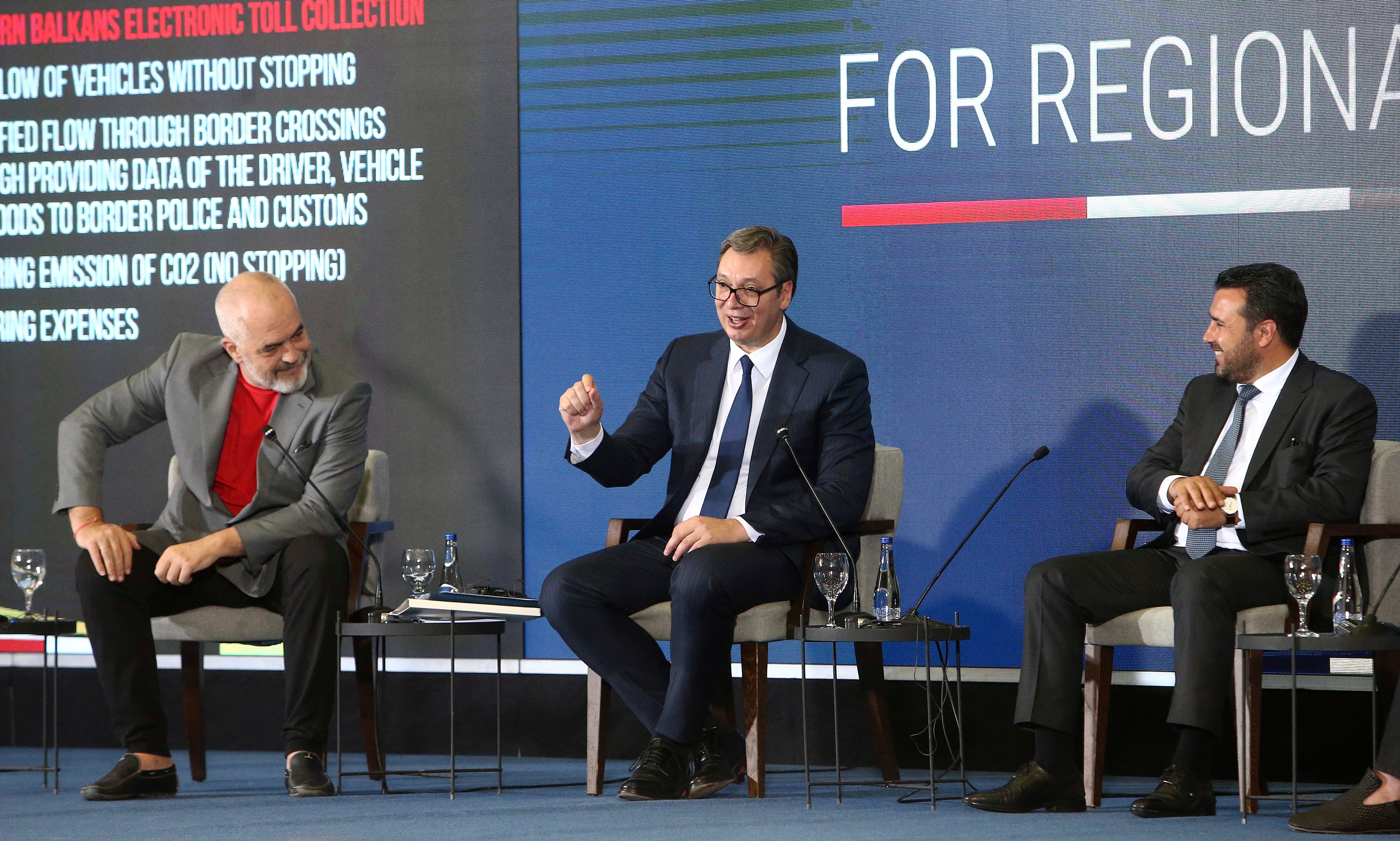Balkan leaders agree to open borders between nations in 2023
Three Balkan leaders have signed agreements to open their national borders to each other's citizens and products in 2023 without restrictions

Frustrated with delays in obtaining European Union membership for their countries, three Balkan leaders signed agreements Thursday to open their national borders to each other's citizens and products in 2023 without restrictions.
Serbian President Aleksandar Vucic and the prime ministers of Albania and North Macedonia, Edi Rama and Zoran Zaev signed three agreements during an economic forum in North Macedonia’s capital, Skopje organized by the three countries' chambers of commerce.
“If we manage to overcome the administrative problems, from January 1, 2023, there will be borders, but there will be no stopping for our citizens," Vucic said. "There will be no stopping from Belgrade to Tirana and vice versa. It will be a historic moment.”
The Balkan leaders signed deals facilitating trade and movement, cooperation in dealing with disasters and freeing the labor market by removing work permit requirements and simplifying procedures.
Visa-free travel and customs-free trade are among the most highly touted features of the 27-nation EU.
The initiative to allow the free flow of goods, capital and people between Serbia, Albania and North Macedonia began in 2019, and has now been dubbed “Open Balkans.”
Bosnia and Herzegovina, and Montenegro have also been invited to join, but so far have not done so.
The three leaders reiterated their disappointment over the EU’s failure to start membership talks with Albania and North Macedonia, after Bulgaria blocked Skopje’s bid because of disputes over history and language. North Macedonia has been a candidate to join the EU since 2005.
Zaev said the EU’s failure to fulfill its promises because of the bilateral issue with one EU member, even though both North Macedonia and Albania have met all entry criteria, is “against the European idea, against the interests of the EU itself.”
The western Balkan countries “cannot wait for all of the EU’s internal problems to be solved” in order for the region to move forward, he said..
Bookmark popover
Removed from bookmarks